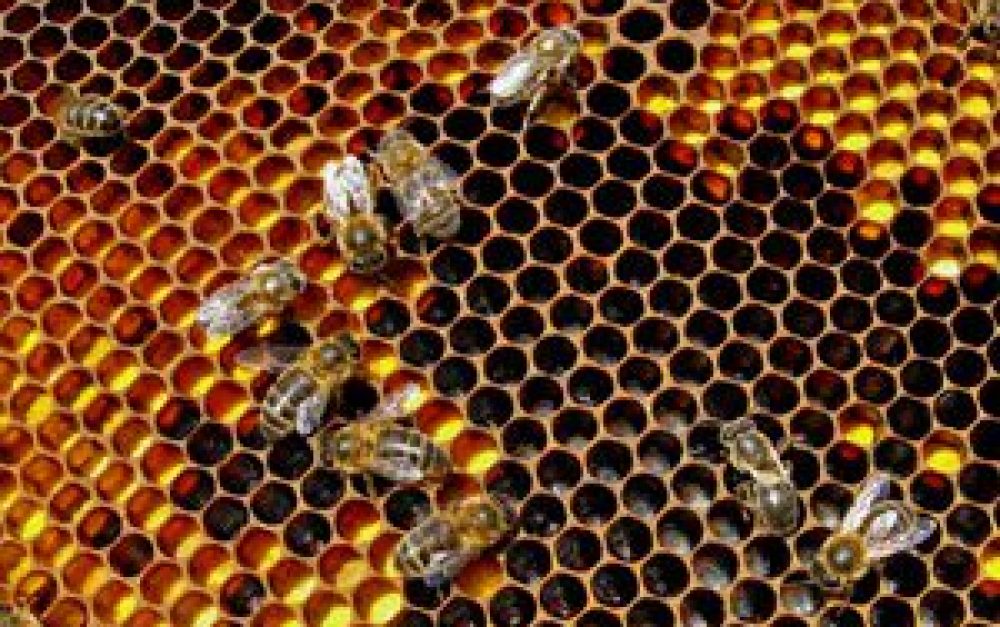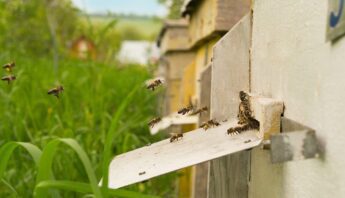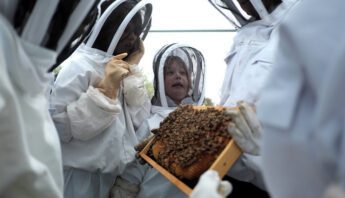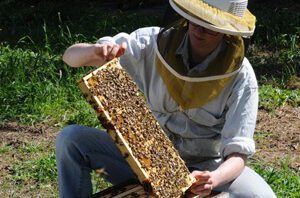Beekeepers and bee enthusiasts across the country are celebrating our favorite pollinators this weekend. National Honey Bee Awareness Day is an opportunity to take stock of all the ways bees contribute to our daily lives — pollinating a third of our food, for starters.
It's also an opportunity to take a hard look at the trouble facing bees. Bee populations are in drastic decline, with beekeepers reporting historic losses this past season of 40-70%. And pesticides are a key part of the problem.
Trouble from all sides
A new pilot study out this week highlights that bees are exposed to harmful pesticides from multiple sources, some wholly unexpected. The pilot study found that "bee-friendly" plants from home and garden stores in different regions of the country were pre-treated with bee-harming pesticides.
 Photo credit: Elana Amsterdam
Photo credit: Elana Amsterdam
Elana Amsterdam — longtime PAN friend and supporter — celebrates the contributions of bees with the food she makes. In honor of National Honey Bee Day, she shared this honey-sweetened recipe.
Banana Bread (serves 12)
This Paleo recipe for banana bread is a high protein, gluten free treat that is quick and easy to make. Visit Elana's website for more baking tips.
- 3 bananas* (about 1½ cups) mashed
- 3 large eggs
- 1 tablespoon vanilla extract
- 1 tablespoon honey
- ¼ cup vegan shortening
- 2 cups blanched almond flour
- ½ teaspoon celtic sea salt
- 1 teaspoon baking soda
- Place bananas, eggs, vanilla, honey and shortening in a food processor
- Pulse ingredients together
- Pulse in almond flour, salt and baking soda
- Scoop batter into a greased 7.5 x 3.5 magic line loaf pan
- Bake at 350° for 55-65 minutes
- Remove from oven and allow to cool
*Choose Fair Trade, organic bananas when possible.
This route of exposure, from supposedly safe sources, is in addition to many others. Bee-harming neonicotinoids — a systemic class of pesticide — are widely used on more than 140 crops, including much of the corn planted in the U.S. And neonics, alone and in combination with other pesticides, disrupt vital brain functions that impair bees' ability to learn, smell or remember — all critical capacities for foraging honey bees. Studies show that even extremely low-dose exposures to neonicotinoids undermine immunity, rendering honey bees more susceptible to pathogens.
Save the bees!
In addition to providing honey, bees pollinate nearly 95 kinds of fruits in North America, including almonds, avocados, apples and blueberries, contributing an estimated $19 billion to our agriculture economy.
There is widespread agreement: bees need help, and they need help now. Millions have signed petitions urging the Environmental Protection Agency (EPA) to protect bees from harmful pesticides, and backyard gardeners and beekeepers are doing what they can to create bee-friendly havens. Members of Congress are stepping up, too.
The challenges facing these vital pollinators have also caught the attention of the media, with bees front and center on the current issue of Time Magazine.
Still, EPA's current review of neonics won't conclude until 2018, with an action plan developed sometime thereafter. At the rate their numbers are dwindling, bees can't wait five more years. It's time for EPA to step up, and fast.
Take action » EPA has a newly appointed leader. Join us in calling on Gina McCarthy to make protecting bees a priority!







